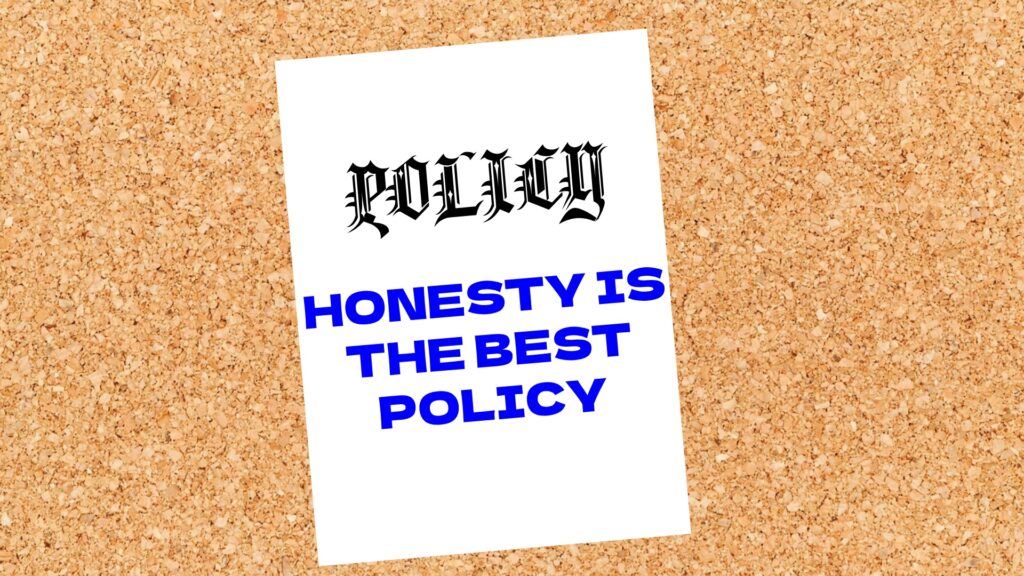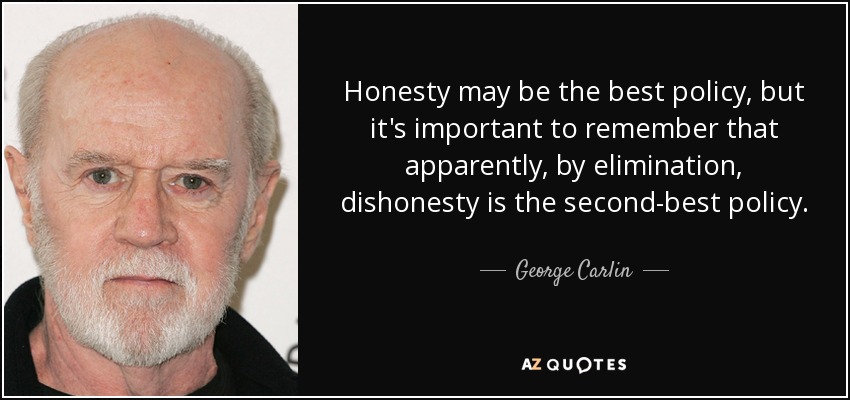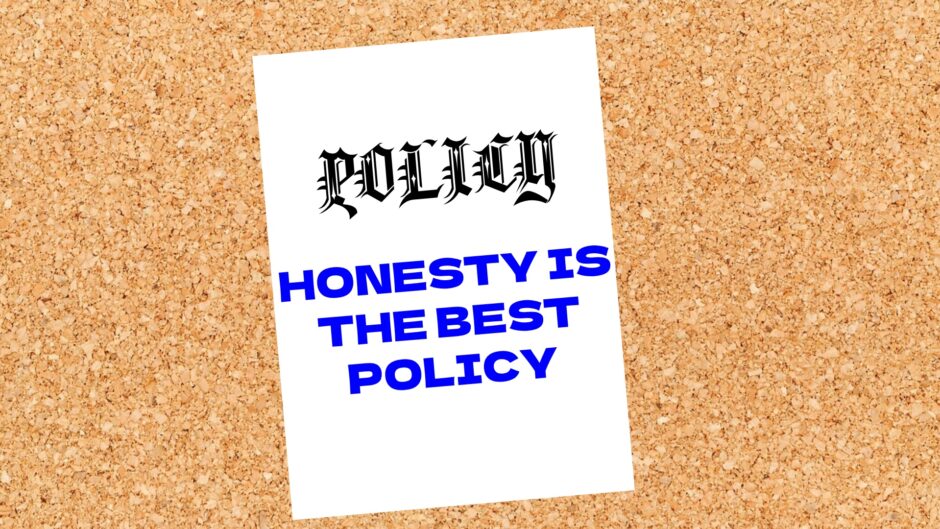
As a fundraiser, I have come to realize that truth is not just a moral principle, but a crucial element in building strong and lasting relationships with donors. Honesty forms the foundation in building successful donor relationships. Donors are more likely to continue supporting your cause when they trust that their contributions are being used effectively and responsibly. This is why it is essential to be transparent and truthful in every aspect of fundraising.
Honesty as a Foundation for Donor Relationships
When it comes to fundraising, honesty should be at the core of all interactions with donors. By being open and transparent about how their donations are being used, you establish trust and credibility. Donors want to know that their contributions are making a difference and are being used for the intended purpose. Communicating the impact of their donations and providing regular updates on the progress of your organization’s mission will strengthen the donor relationship and encourage continued support. Reporting allows you to showcase the impact of their contributions and provide donors with a clear understanding of how their support is making a difference. It is crucial to provide detailed information on the outcomes achieved, the challenges faced, and the strategies employed to address those challenges.
Furthermore, honesty extends beyond financial matters. It also encompasses being truthful about the challenges and setbacks your organization may face. Donors appreciate authenticity and want to be a part of the solution. By sharing the obstacles you encounter, you give them an opportunity to contribute their expertise, resources, or connections to help overcome those challenges. This collaborative approach fosters a sense of shared responsibility and reinforces the bond between donors and your organization.
Advice for Fundraising Leadership: Leading with Integrity
As a fundraising leader, it is essential to lead by example and prioritize honesty and integrity in all aspects of your work. Your actions and decisions set the tone for the entire organization and influence the behavior of your staff, volunteers, and board members. By consistently demonstrating ethical behavior and open communication, you create a culture of trust and transparency within your organization.
It is also crucial to provide ongoing training and guidance to your fundraising team, ensuring they understand the importance of truthfulness and how it relates to their role. Encourage them to be proactive in seeking feedback and suggestions from donors, as this demonstrates a commitment to continuous improvement and a willingness to listen and learn. Leading with integrity not only strengthens your organization’s reputation but also attracts donors who value transparency and honesty.
The Role of Fundraising in Philanthropy and Charity
Fundraising enables organizations to fulfill their missions and create a positive impact in society. However, it is important to recognize that fundraising is not an end in itself but a means to an end. The ultimate goal should always be to address societal issues, improve lives, and create lasting change.
By being honest and transparent in your fundraising efforts, you align your organization’s mission with the expectations and desires of donors. Donors want to see their contributions used effectively and efficiently to fix the problems they care about. By clearly articulating the societal issues your organization aims to solve and demonstrating the impact of your initiatives, you inspire donors to join your cause and contribute to meaningful change.
Legal Obligations and Ethical Duties in Fundraising
Fundraising professionals have legal obligations and ethical duties to uphold in their work. These include compliance with laws and regulations governing fundraising activities. They also include adherence to ethical standards set forth by professional associations and organizations.
By being truthful and transparent in your fundraising efforts, you fulfill these legal and ethical obligations. You also protect the reputation of your organization and the trust of your donors. Stay informed about the fundraising laws and regulations in your jurisdiction and to ensure your organization’s practices are in full compliance. This includes accurately reporting financial information, maintaining proper records, and using funds in accordance with donor intentions.
Donors Helping to Make Things Better: The Desire for Impact
Donors are motivated by a desire to make a positive impact and contribute to meaningful change. They want to see tangible results and know that their contributions are making a difference. When donors see the positive outcomes of their support, it not only validates their decision to contribute but also motivates them to continue and potentially increase their support. By sharing success stories, testimonials, and concrete examples of the difference their donations have made, you inspire and engage donors, fostering a deeper sense of involvement and commitment.
Managing Expectations and Setting Realistic Outcomes
To maintain honesty and transparency in fundraising, it is crucial to manage donor expectations and set realistic outcomes. While it is essential to communicate the potential for impact, it is equally important to be honest about the challenges and limitations your organization may face. By setting realistic expectations, you ensure that donors have a clear understanding of what can be achieved and avoid disappointment or disillusionment. It is better to underpromise and overdeliver than to make unrealistic claims that cannot be fulfilled. By being transparent about your organization’s capabilities and the scope of your initiatives, you build trust with donors and foster a more realistic and sustainable partnership.
The Role of Staff, Volunteers, and Board of Directors in Upholding Morality & Honesty
In fundraising, honesty and transparency are not solely the responsibility of the fundraising leadership. Every member of the organization plays a crucial role in upholding morality and ensuring ethical practices.
Board members, as stewards of the organization, have a particular responsibility to ensure that fundraising efforts align with the organization’s mission and values. They should actively promote honesty and transparency in all fundraising activities and hold the leadership accountable for upholding these principles. By advocating for ethical practices, board members contribute to a culture of trust and integrity within the organization.
George Carlin’s Take on Honesty

While George Carlin’s quote is a very funny one, it should not be your modus operandi. Honesty in fundraising is not just a moral imperative, but also a strategic advantage. Donors appreciate and value honesty, and organizations that prioritize transparency are more likely to attract and retain donors. Be open and truthful about your organization’s mission, impact, and financial practices. You build trust and credibility, which are essential for long-term donor relationships.
Honesty also allows donors to make informed decisions about their contributions. When donors have a clear understanding of how their donations will be used and the impact they can expect, they are more likely to feel confident in their decision to support your cause. This confidence leads to increased donations and a stronger commitment to your organization’s mission.
Conclusion: The Importance of Honesty in Fundraising and Philanthropy
In conclusion, truth is not just a virtue, but a fundamental principle in fundraising and philanthropy. Honesty and transparency form the bedrock of strong and lasting donor relationships. By being open, truthful, and transparent in every aspect of your fundraising efforts, you build trust, credibility, and a shared sense of responsibility with your donors. Upholding these principles can ensure legal compliance and ethical practices. It also fosters a culture of integrity within your organization.
By leading with honesty and transparency, you inspire donors to join your cause and contribute to meaningful change.
Until next week.
L’chaim,
jack




